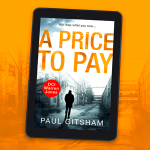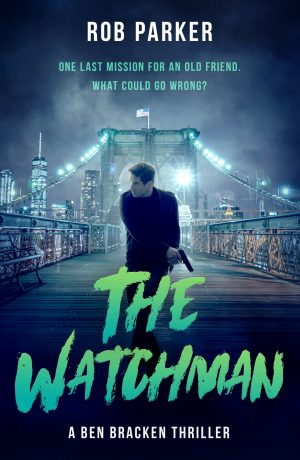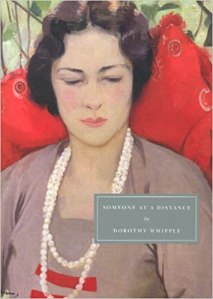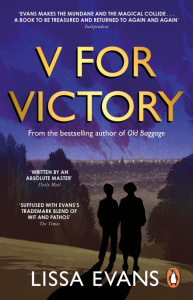Thank you, Mahsuda, for this brilliant post. I’m not a writer but I use the technique of reading out loud quite often when I’m writing book reviews and it really does help to make it flow better and to work out where changes are needed. Thank you also to Becky Hunter for asking me to share this post today.
This skill of reading aloud was a great way for me to step into an audience’s perspective. When I then went on to retell a local legend about a panther who escapes into an English wood, I began to use reading aloud to help me during the writing process as well. The Panther’s Tale was written originally for audio so I had the oral storytelling traditions of folklore very much in mind when I wrote the piece. The sound of the words became integral to the telling of the tale so, as I wrote, I spoke. I said the words out loud, felt when my breath was becoming short, listened out for the lulls that pull in the listener and the short, sharp sentences that captivate them. Ever since then, I have read my words out during and after I’ve written them. This has helped me greatly in finding the voice of my writing early on and hearing when it doesn’t ‘sound’ right. Even writing this piece, I’ve read out the words repeatedly. It may take a little longer than giving your work a quick scan before pressing send, but there’s something reassuring about having tested your words out loud.

Today, the 20th March, is World Storytelling Day! Have you ever wanted to have a go at telling a story? Well, maybe today could be the day you really start thinking about it… To get you feeling inspired, Mahsuda Snaith, author of The Things We Thought We Knew, and How to Find Home, is here to tell us about how reading out loud can make you a better storyteller… Mahsuda is also an author tutor at The Novelry, which runs online writing courses for novelists, where aspiring authors are guided through the kernel of an idea, all the way to a finished book.
When I was younger, I wrote in my head. I would daydream storylines, I would imagine characters walking down the street. At night, I would lie in bed and play out lines of dialogue as if they were scenes in a film. Eventually, I began transferring those daydreams and storylines onto the page, first written in notebooks, then typed up on a computer. I would work away at those words like a sculptor with clay until I had the shape of something close to a story.
What I found was surprising; when I read out loud with an audience in mind, I began to edit. A switch flipped in my mind when suddenly the words that had seemed perfectly fine on the page were glaringly missing rhythm or slowing down when they needed pace, that descriptions went on too long and added nothing new, that a word was repeated too many times. Then, when I found myself stumbling over certain sections, I knew that I needed to tweak them, not just because I was likely to stumble over them when presenting to the club, but because the reader was likely to stumble over them too.
With online creative writing courses for those at any stage of their writing, including beginners, The Novelry takes writers from the very kernel of an idea through to a polished manuscript ready for literary agent submission. With mentoring from bestselling authors and editorial advice from leading industry professionals, The Novelry is the writing school recommended by leading literary agents – and there is a course for everyone, no matter what stage you’re at.
When I first read out at the club my voice shook and I raced through the words as if I was in a speedreading contest. One night, another writer at the club told me that, before she did readings, she would practise her writing out loud. To be more specific, she would read to her fridge, sometimes the toaster. Soon after, I began reading my pieces to inanimate objects too; the bookshelves, the kettle, the living room fireplace.
So much more than creative writing courses…
Loading…
Mahsuda Snaith
- Imagine an audience. You’ll be amazed how reading aloud, even to a pretend audience, can slip you into an editing mindset. So read to your furniture, read to your pets and if you’re brave enough…
- Stop imagining, and find an audience. Whether it’s a writing buddy, a club or joining a course like The Novelry where there are regular workshops to share work, having a small audience when reading aloud is a great way of building your confidence and sensing when you might be losing your listeners.
- Slow down as you read. Savour the words. Feel how they sound in your mouth. Another option is to record yourself as you read to help identify where the words are flowing and where they are stumbling.
- Read as you write. Write a line, say it out. Finished a paragraph? How does it flow and does it feel complete? Don’t let your words go untested before you press send.
- Have fun! Put expression into your words and read as though your audience can’t wait to hear your next sentence. If you can, pretend they are not your words at all but those of a friend’s. You’ll be much kinder with them and less critical if you aren’t so attached.
By Mahsuda Snaith
Related
Say it Out Loud: How Reading Aloud Can Help Your Writing
Find out more about our courses here: https://www.thenovelry.com
All during this process of creating I wouldn’t say a word. My writing was a secret so I never spoke about it let alone shared it with others. Until, feeling the weight of that silence, I joined a local writers’ club where members read out pieces of their work and got verbal feedback immediately. Oh, the idea of it! Sharing my words then receiving a response about them was an utterly terrifying concept. Yet, a part of me desperately knew I needed that feedback to grow as a writer.






